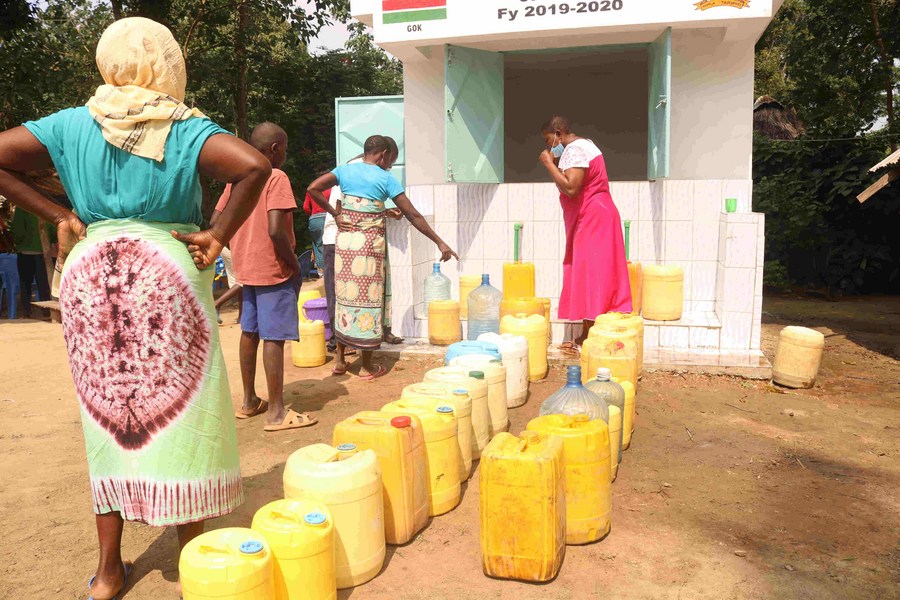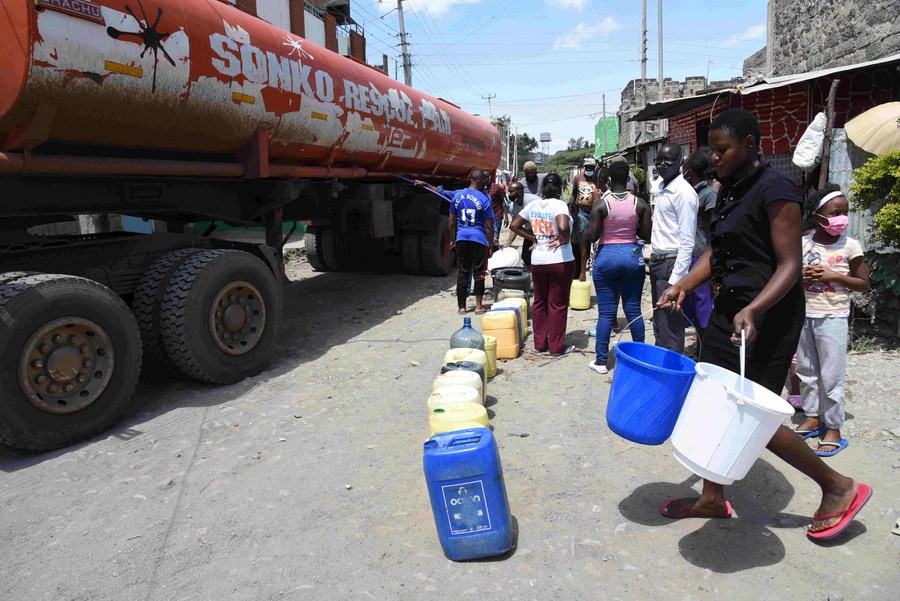
Residents queue to fetch water at a newly launched water point at Mtepeni in Kilifi County, Kenya, July 23, 2020. (Xinhua/Fred Mutune)
Kenya plans to undertake legal and policy reforms to boost water storage and improve sanitation and irrigation projects in efforts to boost water security.
NAIROBI, March 23 (Xinhua) -- Kenya plans to undertake a number of legal and policy reforms in order to boost the country's water security, a senior government official said on Monday.
Sicily Kariuki, cabinet secretary, Ministry of Water, Sanitation and Irrigation said in a statement issued in Nairobi the annual water per capita is less than 500 cubic meters, making Kenya a severely water-stressed nation, according to the United Nations (UN) global scale on water security which stipulates a minimum of 1,000 cubic meters per person per year.
"To address this situation, the government is undertaking major water, sanitation and irrigation projects, including policy governance and legal interventions to increase water storage and improve sanitation and food security in the country," said Kariuki as Kenya joined the rest of the world to celebrate the 28th edition of the World Water Day on March 21.

Residents queue to fill their jerricans with water that was distributed by the Sonko Rescue team in Nairobi, capital of Kenya, May 14, 2020. (Xinhua/John Okoyo)
This is an annual United Nations observance that advocates for sustainable management and development of freshwater resources.
Kariuki said that the current level of water access in Kenya is estimated at a national average of 64 percent for water and 26 percent for sanitation in urban areas.
The ministry said that it targets to achieve 80 percent access to safe water and 40 percent for sanitation services by the end of 2022.
Kariuki added that Kenya will also increase the area under irrigation to 700,000 hectares from the current 510,000 hectares by the end of next year.
She said that as the country endeavors to boost access to clean and safe water in adequate quantities, there is a need to recognize that water resources in Kenya are not evenly distributed.
"Inter-basin transfer of water is therefore very important, and it can be achieved through effective public participation and prudent sharing of water resources to equally benefit all while addressing conflicts that inevitably arise from competing users," she revealed. ■




